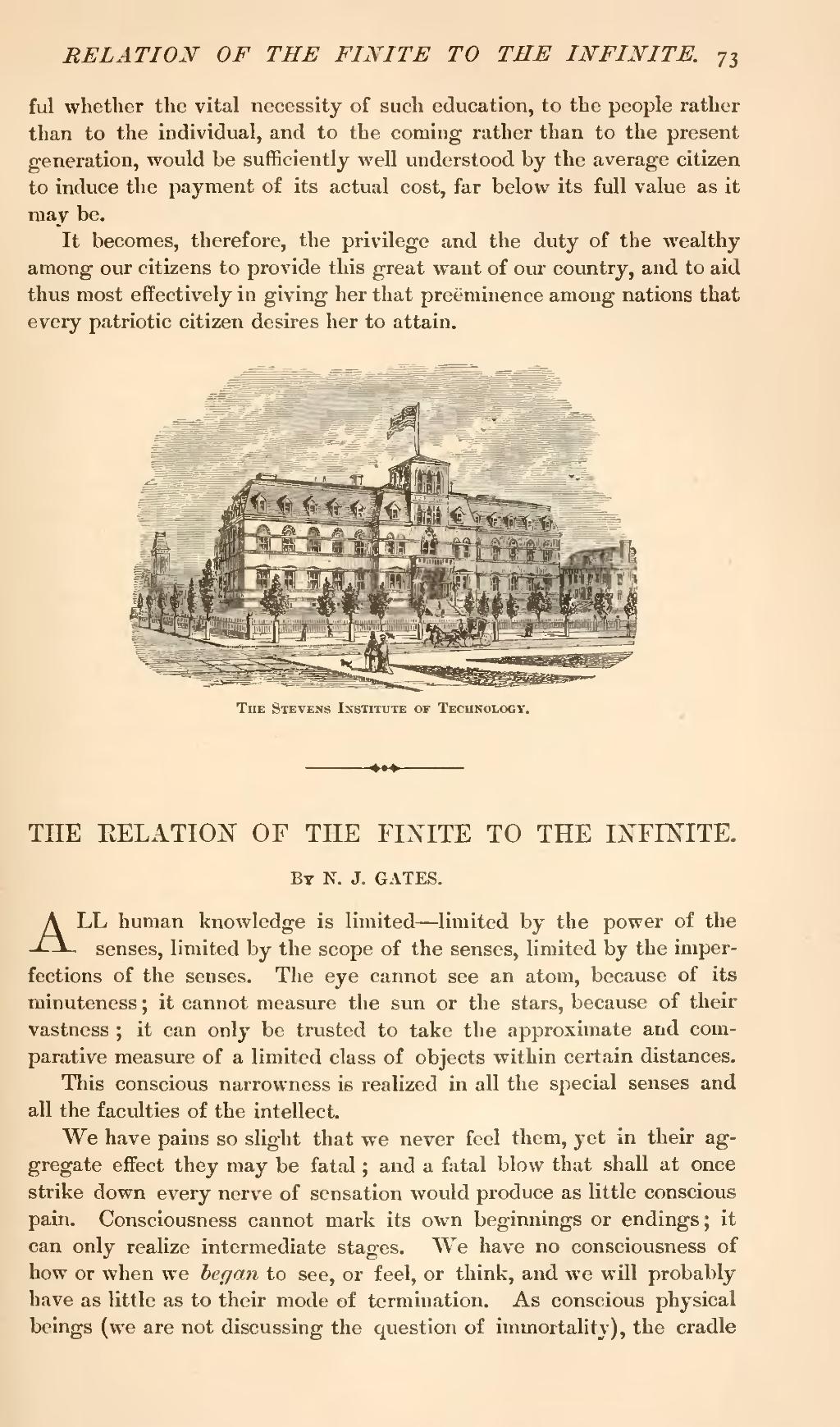ful whether the vital necessity of such education, to the people rather than to the individual, and to the coming rather than to the present generation, would be sufficiently well understood by the average citizen to induce the payment of its actual cost, far below its full value as it may be.
It becomes, therefore, the privilege and the duty of the wealthy among our citizens to provide this great want of our country, and to aid thus most effectively in giving her that preëminence among nations that every patriotic citizen desires her to attain.

The Stevens Institute of Technology.
| RELATION OF THE FINITE TO THE INFINITE |
By N. J. GATES.
ALL human knowledge is limited—limited by the power of the senses, limited by the scope of the senses, limited by the imperfections of the senses. The eye cannot see an atom, because of its minuteness; it cannot measure the sun or the stars, because of their vastness; it can only be trusted to take the approximate and comparative measure of a limited class of objects within certain distances.
This conscious narrowness is realized in all the special senses and all the faculties of the intellect.
We have pains so slight that we never feel them, yet in their aggregate effect they may be fatal; and a fatal blow that shall at once strike down every nerve of sensation would produce as little conscious pain. Consciousness cannot mark its own beginnings or endings; it can only realize intermediate stages. We have no consciousness of how or when we began to see, or feel, or think, and we will probably have as little as to their mode of termination. As conscious physical beings (we are not discussing the question of immortality), the cradle

